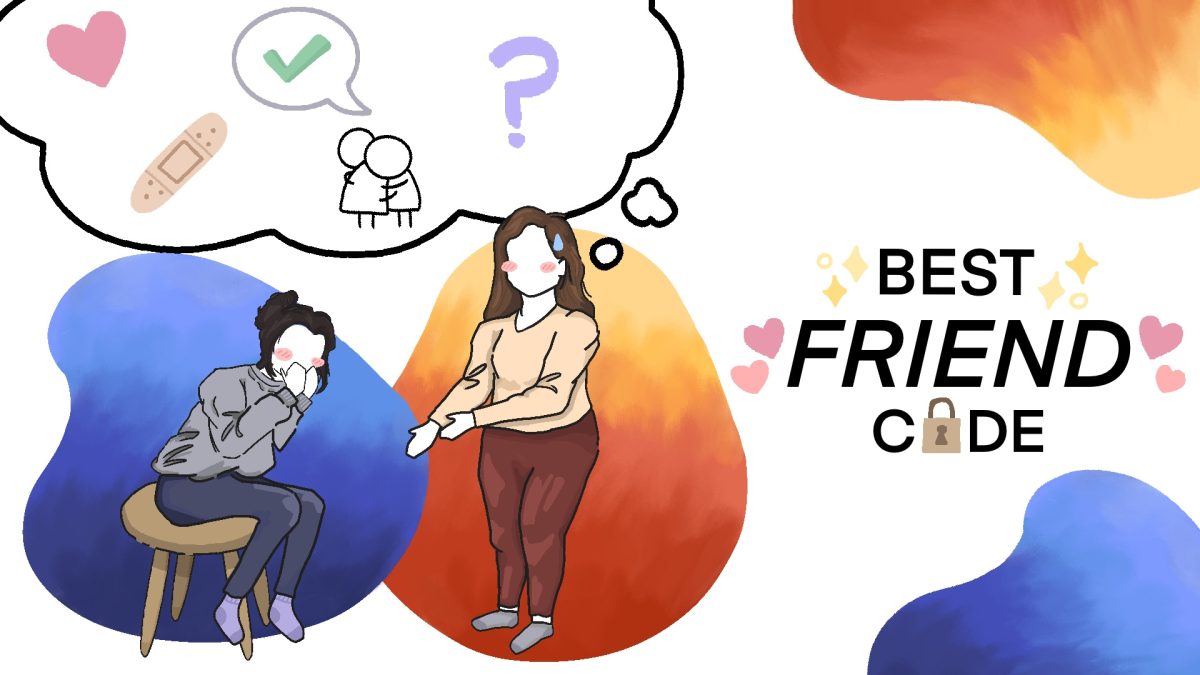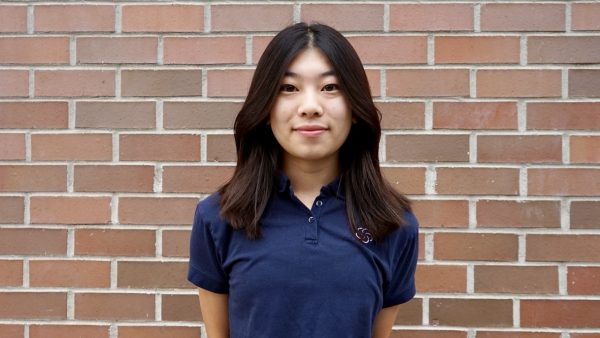A little while back, a friend came up to me and asked me a sensitive, personal question. I didn’t know how to respond. Should I be the friend that is brutally honest? Or, should I be the friend that tells a white lie to make the other feel better?
We’ve all faced a similar situation at least once — where a friend asks for feedback, or you find yourself bracing for a confrontation. We are all unique in our responses, actions and preferences.
“When a situation escalates for one person – like something goes on in their life or something’s feeling a little bit more vulnerable – the behavior will shift completely,” Wellness teacher Lea Pence said. “The friend will show up in a different way to care for their friend. That might be a place where there’s a lot less honesty, and more ‘little white lies’. And also the converse.”
Pence said that friendships are “little templates” for how we observe the world, and for what kind of spaces we feel familiar in.
In these spaces, we cannot constantly give advice to our friends — Eve Kulbieda, Dean of US Students, said that it is important to ask what our friends need. “Often, when we’re with our friends, we think about what we want to provide for them, but often we don’t think about asking them what they want out of this.”
Students shared context is also essential.
If the conversation is about clothes or appearance, ASB members Greta Bollyky ‘24 (secretary), Liv Nickel ‘24 (president) and Annika Heinemann ‘24 (wellness representative) said they would consider a friend’s mood, and only share opinions when asked.
In a different context, Heinemann said she would pivot: “As far as more serious situations, I think honesty is really important. If your friend does something wrong, it’s important to recognize that, and hold people accountable — even if you’re best friends. It’s kind of your job, right?”
Kulbieda said that when a friend asks for feedback, it’s always important to lead with questions. However, in confrontations, it’s important to give a heads-up over text, and then have the conversation in person.
Misunderstanding can happen in any kind of conversation with a friend, but especially during emotionally charged or confrontational scenarios. “I feel like misunderstanding is always something that gets in the way when people hear words that elicit an emotion. Sometimes, it’s hard to find your friendship through that emotion,” Pence said. “It’s certainly hard to find the friendship that you were so used to.”
To avoid misunderstanding, Pence said to first, acknowledge the context; second, be mindful of the approach of the topic; and third, if possible, rehearse beforehand.
Lastly, it is key to be honest and vulnerable about our own feelings going into the conversation. “And then, prefacing the entire conversation with your feelings of being nervous, your feelings of trying to have care, and that you really don’t want this to go wrong,” Pence said.
In the same way, our good intentions can also have harmful consequences. There are times when we choose to tell bigger lies in an attempt to protect our friend’s feelings.
Nickel said that it is the big things that cause annoyance for her, such as a friend lying about spending time with another friend, even if she already knew about it.
Heinemann said that lies don’t help, even when trying to protect others’ feelings. In fact, lying makes it worse.
While lies can deteriorate a friendship, it’s also great to have differing relationships within a friend group. “You don’t have to be best friends with every single person in the group, to have beautiful relationships in the group with the individuals,” Kulbieda said.
Kulbieda also said that there is a fine line between lies and nondisclosure. “Sometimes, people like to keep things private or confidential, and I don’t think that’s lying. I think everyone has the right to not disclose things about themselves.”
However, lies can cause cracks in the friendship. “It could start to form trust issues,” Nickel said. “Friendship should be built on trust, transparency and being genuine with each other. When lies start to bubble up, I feel like you’re hiding your true self, and you’re not being authentic.”
There is also a difference between lies and white lies. “I think white lies are important though — for little confidence boosters,” Bollyky said.
At the end of the day, it’s important to have a friend that appreciates who you are. “I think it’s the difference between having a friend that likes you for who you are, versus wanting you to be someone else,” Bollyky said.
Kulbieda said that courage is essential. “I think being brave in relationships is really important. And that means being honest.”




